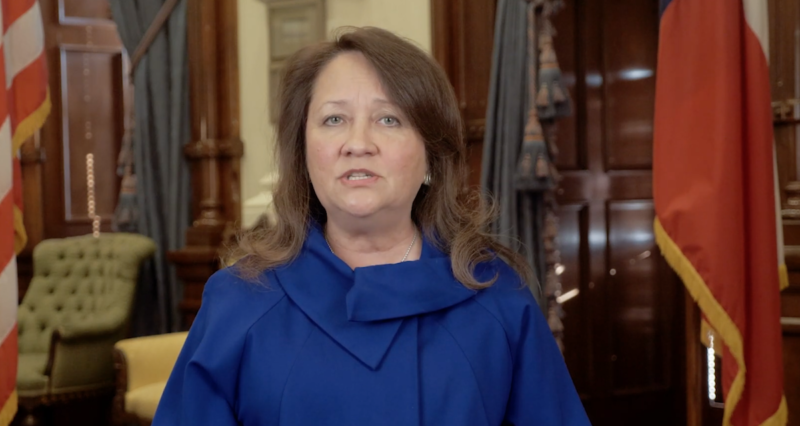Celia Abbott has called on faith communities to join in a day of prayer on January 12 or any other day during the month, coinciding with Human Trafficking Prevention Month.
In a recorded statement published on Youtube, Abbott said, “You are invited to join us on Sunday, January 12, for a day of prayer for victims and survivors of human trafficking. “
She went on plug the governor’s GRACE initiative, which stands for Governor’s Response Against Child Exploitation. The GRACE team recently launched an advertising campaign in partnership between the anti-trafficking nonprofit A21 and the Outdoor Advertising Association of Texas.
The campaign features billboards in 70 cities across Texas with slogans like “Can You See Me?” or the equivalent in Spanish, “Puedes Verme?”
The human trafficking division within the Texas Department of Family and Protective Services is helping organize the day of prayer. An Eventbrite page set up by the division says, “Pray for the victims and survivors of human trafficking, as well as those who work to support them. Pray that we all act to protect human rights, respect human dignity, and end human trafficking in our nation.”
Human trafficking is a serious problem in Texas. The state is ranked second in the nation in most reported human trafficking cases.
How to Spot a Trafficking Victim
There are two main types of human trafficking: labor trafficking and sex trafficking. Each has different signs. According to the Texas Attorney General’s Office, red flags for labor trafficking include:
- Working excessively long or unusual hours
- Living where the individual works
- Living in an area that is not zoned for residential
- Transported to and from work by the employer
- Housing, food, and hygiene products all being supplied by the employer
- Not being paid on a regular schedule
- Inability to speak English
- Identification documents or money are being held by a third-party.
Red flags for sex trafficking include:
- High-end clothing recently purchased
- Hotel keys
- Rolls of money
- Prepaid credit cards
- Tattooing/branding
- Lack of eye contact
- Third-party control of the person’s schedule, identifying documents, money, and/or travel.
